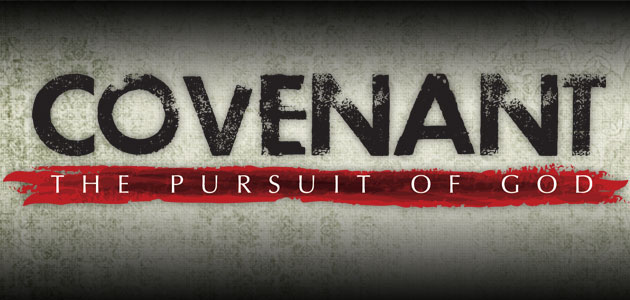Home | About Us | Directions | Bulletins | Sermons & Audio | Cross Of Christ Studies | Classes | Student and Parent Resource Page | Dangers Facing the "Non-Traditional"
Click Here for the Latest Edition of the Auburn Beacon
To Subscribe to
the Auburn Beacon please send an E-mail to:
larryrouse@aubeacon.com

Hear Buddy Payne
Speak in Auburn, Alabama
All Joy and Peace in Believing
![]()
![]()
Our God He is Alive
(Evidences from DNA)
![]()
![]()

The Final Stages of Israel's Apostasy
Adult
Bible Class in Progress - Sunday
Morning 9:30 - Auditorium Class
Planning to Visit Us?
What
to Expect
Current Class
Information
Thoughts To Ponder
Open rebuke is
better Than love carefully concealed. Faithful are the wounds of a
friend, But the kisses of an enemy are deceitful.
(Proverbs 27:5-6)
You will need
the following viewers
to view many of the
files on this site.
![]()
Click here to
download
Adobe Acrobat Reader
![]()
Click here to
download
Microsoft PowerPoint Viewer
University church of Christ
Assembly Times
Sunday
Bible Classes (9:30)
AM Worship (10:20)
PM Worship (6:00 pm)
Wednesday
Bible
Classes
(7:00 PM)
Location
449 North Gay Street
Auburn, AL 36830
Click Here for Specific
Directions
Association Without Adaptation
by Russ Bowman
The days leading up to the arrest and crucifixion of Jesus must have been terribly confusing for His apostles. On the first day of that week, they had walked among the throngs of people who were parading before and after the Lord, paving the road with branches from trees, and openly welcoming Him to Jerusalem as their long-awaited Messiah. The twelve watched as He drove out of the temple those who were engaged in commercial enterprise; stood in wonder as He gave sight to the blind and strength of limb to the lame; listened to the cries of the children echoing the words of their parents - “Hosana to the Son of David!”. They were present as the Pharisees and Sadducees and chief priests and elders confronted Him with questions and challenges and it must have thrilled them and inflamed their own Messianic hopes as He refuted every effort to undermine His teaching and power. They saw the fig tree dried up by its roots only one day after their Master had cursed it. And they must have felt the rising tide of expectation in the city as the multitudes embraced Jesus as their King. But, at the same time, Jesus warned them of great tribulation - the very stones of the Temple would be cast down; they would be pursued as objects of hatred and persecution. He told them, at least twice in these few short days, that He was about to die. Furthermore, He predicted that they would forsake Him, and one of them would betray Him. How could they process all of these conflicting scenes? It’s no wonder that Peter could be so bold in his affirmation of loyalty - “Even if all are made to stumble because of you, I will never be made to stumble!” Even when Jesus specified the details of his denial, Peter resolutely avowed, “Even if I have to die with You, I will not deny You!” I find it impressive that, in the garden of betrayal, surrounded by an armed crowd, Peter was the one who drew his sword and attacked those who threatened his Master. Clearly, at that moment, he was willing to die in faithfulness to his word.
But Jesus told him to put his sword away. And He allowed Himself to be taken without resistance. And Peter’s world - his expectations and dreams and hopes and illusions - came crashing down. Dejected, he ran. Confused, he turned back and followed. He secreted his way into the courtyard of the high priest to see what would happen to Jesus. He found himself surrounded, not by the hopeful crowds, but by the murderous opposition. In a dim courtyard, illuminated by a small fire, a couple of servant girls caught a glimpse of his face in the flickering light. “Weren’t you with Him?” Panic. “No.” Someone else, “But I saw you with Him. I saw you in the garden!” “I don’t know the man.” Others began to look more closely - “You’re one of His disciples - you’re a Galilean; your speech betrays you.” Cursing, swearing, sweating in the cold, fearing for his life, Peter’s great assurance is gone. “I don’t know what you’re saying!” A rooster crows in the distance. Jesus, across the courtyard, turns and looks as His friend. Peter remembers. But the denial is done.
God’s record is replete with anecdotal warnings about the power of influence. Lot moved toward Sodom where the men were “exceedingly wicked and sinful” (Gen.13:19). He saw some of his daughters die at Sodom; lost his wife in her disobedience; in his weakness fathered children by the two immoral daughters that survived. Would his life have been different in the absence of Sodom’s influence? A generation of people lost their lives in the wilderness because of the influence of ten men who didn’t trust in God’s power to deliver Canaan into the hands of Israel (Num.13). Solomon dishonored the throne of Israel in allowing his foreign wives to turn his heart away from God (I Kings 11). Herod beheaded John the Baptist due to the influence of a woman he loved, a woman after which he lusted, and the godless influence of a room full of party guests (Mt.14). Pilate condemned the Son of God to crucifixion because he feared the angry cries of a crowd, in spite of the military might which he commanded (Mt.27:24). Peter was strong until surrounded by the enemy in the absence of the Lord.
Influence is a double-edged sword. As disciples of Christ, we are commanded to exercise it (Mt.5:13f; I Pet.2:9f). One of the great difficulties of loyal service is to stand up for God when we are almost always in the minority, and even more so when there are clearly painful consequences to follow. But it is our task, and we must be conscious of that obligation in our homes, at our jobs, in our schools, in our social circumstances. In I Pet.4 we are encouraged to brace ourselves as we “do not run with them in the same flood of dissipation” (v.4) and then “do not think it strange concerning the fiery trial which is to try you” (v.12f). Stand up, and you will certainly stand out. But the other side of the sword is the danger of allowing those we are trying to influence to hold sway over us. God told the Israelites, “You shall not follow a crowd to do evil” (Ex.23:2). Proverbs is full of warnings about the danger of ungodly influences. Paul echoes the sentiment regarding doctrinal dangers - “Do not be deceived: Evil company corrupts good habits” (I Cor.15:33). Over and over we stand warned about allowing the world to dictate our convictions, our standards, our affections. But we can never be about the business of saving souls unless we are existing in the world and among those given to rebellion. Perhaps we could cloister ourselves from society with its wicked influences and find it easier to remain unmoved. But how would we ever move anyone else? Therein lies the dilemma.
So what’s the solution? Association without adaptation. We can be in the world without being of the world (Jn.17:14f). We can interact with people in our daily course of living without embracing the world’s ungodliness. But we must make sure of our commitment. We must be singularly devoted to Christ. If I am not dedicated, I will be drawn away. I must sacrifice myself (Rom.12:1f; Mt.16:24). No thing nor no one must ever take precedence over that determination. And, I must refrain from intimacy with anyone or anything that would lead me away from God. Contact may be unavoidable. But intimacy is my choice. Why would I give myself in thought, in affection, in priority, in body to someone who is not concerned for my soul? Perhaps that’s the practical key. Influence others because you care for their soul. But don’t be swayed by those who do not care for yours.
Other Articles by Doy Moyer
Doctrine and Teaching
A Test of Fellowship
Is It Wise and Good to Begin Drinking Alcohol?
Jesus Emptied Himself: A Basic Approach
"As Long as It Does not Harm Anyone"
Pathetic Dust or a Living Hope
You May be Surprised to Learn
Moralizing Over the Gospel
Alcohol and Wisdom
Brotherly Love
The Logic of Authority
Was Jesus Literally Forsaken?
Baptism and the Blood
The Problem With Creeds
For Past Auburn Beacons go to:
www.aubeacon.com/Bulletins.htm
Anyone can join the mailing list for the Auburn Beacon! Send your request to:
larryrouse@aubeacon.com






